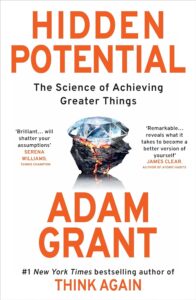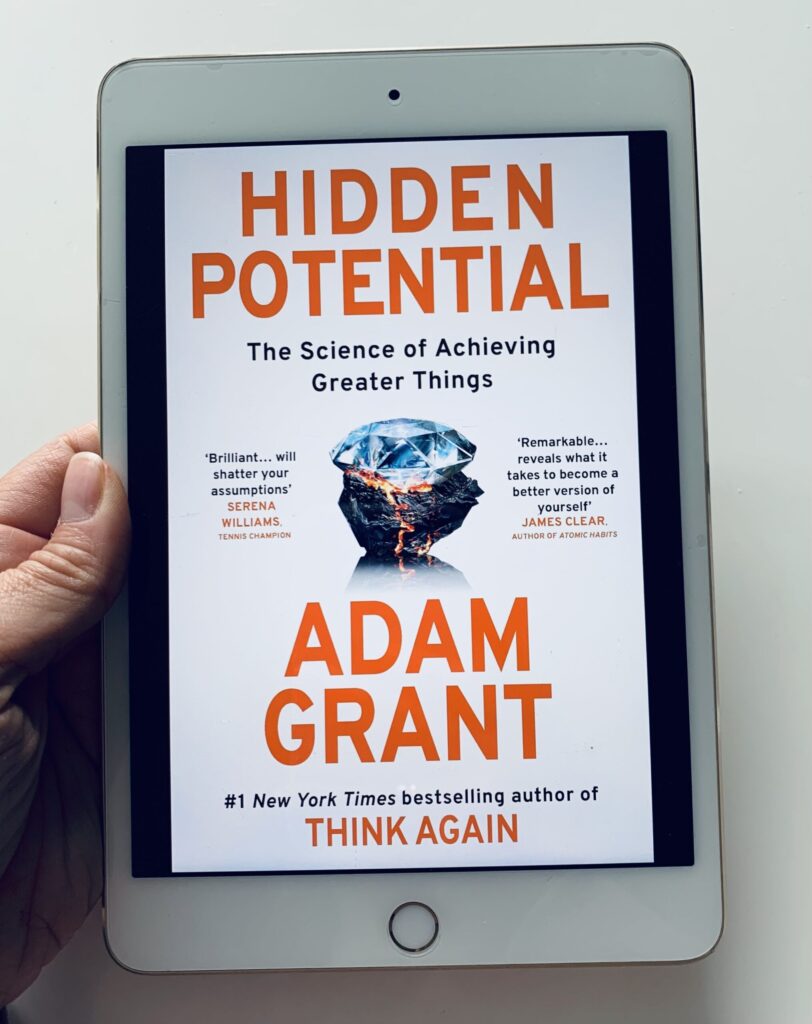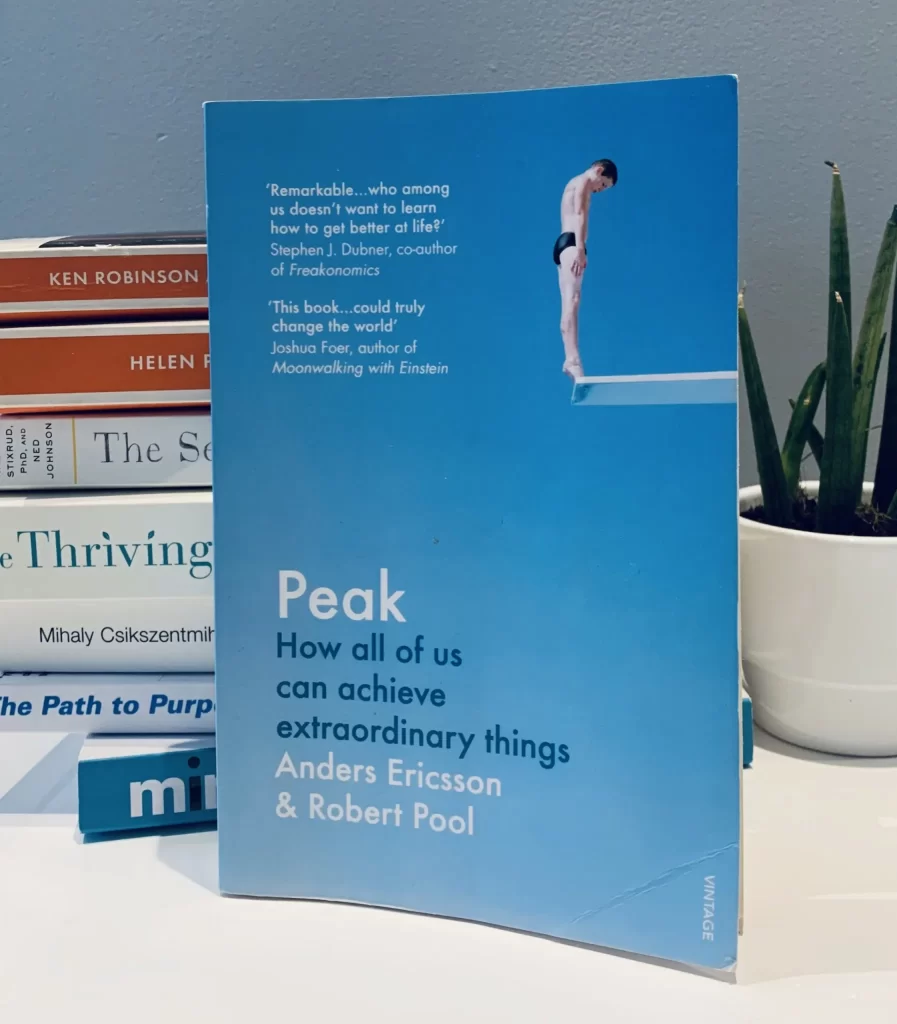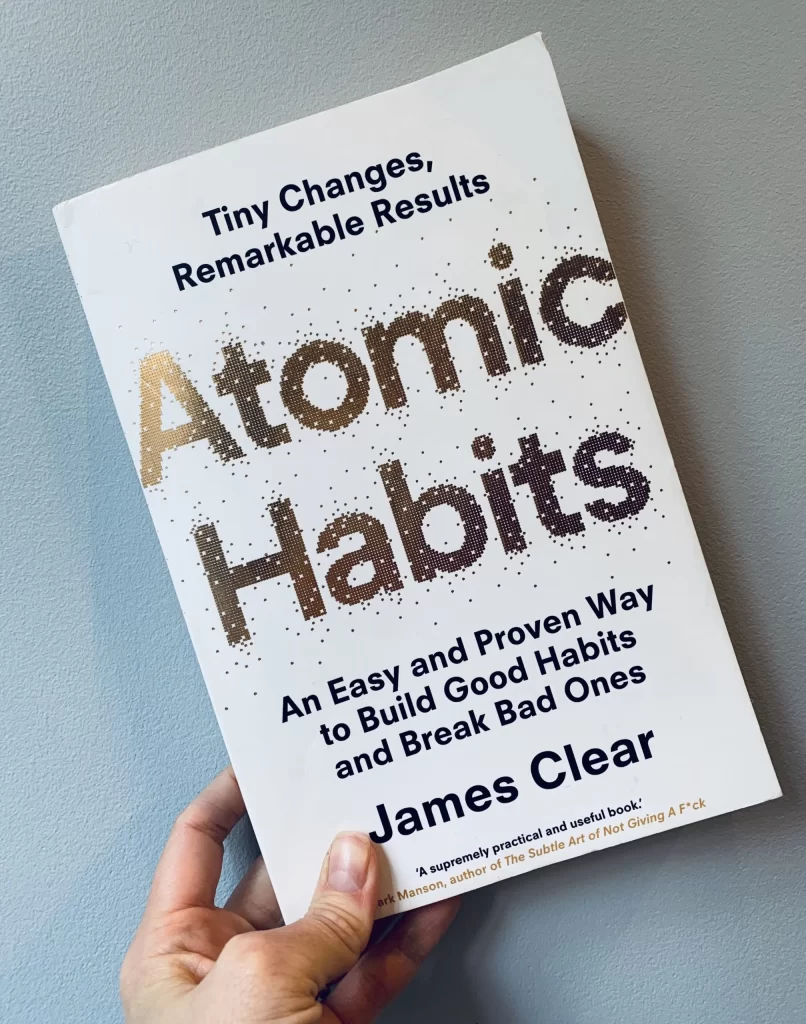 Hidden Potential
Hidden Potential
The Science of Achieving Greater Things
Adam Grant
Virgin Digital (26 Oct. 2023)
About Adam Grant
Adam Grant is an organizational psychologist at Wharton, where he has been the top-rated professor for seven straight years. A #1 New York Times bestselling author and one of TED’s most popular speakers, his books have sold millions of copies and been translated into 45 languages, his talks have been viewed over 35 million times, and his podcasts Re:Thinking and WorkLife have been downloaded over 65 million times. His pioneering research has inspired people to rethink fundamental assumptions about motivation, generosity, creativity, and potential.
Adam has been recognized as one of the world’s 10 most influential management thinkers and Fortune’s 40 under 40, and has received distinguished scientific achievement awards from the American Psychological Association, the Academy of Management, and the National Science Foundation. His viral piece on languishing was the most-read New York Times article of 2021 and the most-saved article across platforms. He received his BA from Harvard and his PhD from the University of Michigan, and he is a former junior Olympic springboard diver and magician. He lives in Philadelphia with his wife Allison and their three children.
About The Book
“Everyone has hidden potential. This book is about how we unlock it. There’s a widely held belief that greatness is mostly born—not made. That leads us to celebrate gifted students in school, natural athletes in sports, and child prodigies in music. But you don’t have to be a wunderkind to accomplish great things. My goal is to illuminate how we can all rise to achieve greater things. […]
You can’t tell where people will land from where they begin. With the right opportunity and motivation to learn, anyone can build the skills to achieve greater things. Potential is not a matter of where you start, but of how far you travel. We need to focus less on starting points and more on distance traveled. […]
This book is not about ambition. It’s about aspiration. As the philosopher Agnes Callard highlighted, ambition is the outcome you want to attain. Aspiration is the person you want to become. The question is not how much money you earn, how many fancy titles you land, or how many awards you accumulate. Those status symbols are poor proxies for progress. What counts is not how hard you work but how much you grow. And growth requires much more than a mindset— it begins with a set of skills that we normally overlook.”
Adam Grant is one of my favourite thinkers of our time. He’s one of the most-cited researchers, and he’s basically a walking encyclopedia of how humans succeed (or fail) at work and in life. His latest book, Hidden Potential, is a deep dive into what really makes people achieve great things. Spoiler: It’s not talent.
As the subtitle suggests, this book explores “the science of achieving greater things.” And the main message is very simple: potential to achieve great things isn’t some rare gift; it’s something we all have. Drawing on recent research and real-world examples, he demonstrates how qualities like character, a drive to learn, and the right environment can help anyone unlock their hidden potential and accomplish extraordinary things.
I absolutely loved the book and would recommend it to every parent and educator out there. It is absolutely packed with great insights and in these notes, we’ll barely scratch the surface – definitely grab the book for more.
Let’s jump straight in.
P.S.: If you haven’t seen Adam’s most popular TED Talk The Surprising Habits of Original Thinkers, I highly recommend checking it out:
Key Insights
Character – Get Better at Getting Better
“Character is often confused with personality, but they’re not the same. Personality is your predisposition—your basic instincts for how to think, feel, and act. Character is your capacity to prioritize your values over your instincts. […]
If personality is how you respond on a typical day, character is how you show up on a hard day. […]
After studying the character skills that unleash hidden potential, I’ve identified specific forms of proactivity, determination, and discipline that matter. Traveling great distances requires the courage to seek out the right kinds of discomfort, the capacity to absorb the right information, and the will to accept the right imperfections.“
Character is everything when it comes to success. It’s the secret sauce to unlocking hidden potential. Sure, learning hard skills is important, but without the right character, those skills won’t take you very far. People who achieve great things consistently have one thing in common: strong character skills.
Adam Grant shares this fascinating study from West Africa where researchers worked with 1,500 entrepreneurs. They split them into three groups: one group did their thing as usual, while the other two spent a week learning new strategies through case studies, role-playing, and reflection. The twist? One group focused on cognitive (hard) skills, while the other worked on character (soft) skills—like grit, discipline, and proactivity. The results were jaw-dropping. Entrepreneurs who worked on character skills saw their profits jump by an average of 30% over the next two years—that’s nearly triple the growth of those who focused on hard skills!
This idea isn’t just for adults. In How Children Succeed, Paul Tough dives into what helps kids thrive in life, and it turns out character plays a massive role. While cognitive abilities matter, non-cognitive traits like self-control, optimism, curiosity, and grit are equally—if not more—important for long-term success.
Which brings us to the next insight…
Get Comfortable Being Uncomfortable
“Becoming a creature of discomfort can unlock hidden potential in many different types of learning. Summoning the nerve to face discomfort is a character skill—an especially important form of determination. It takes three kinds of courage: to abandon your tried-and-true methods, to put yourself in the ring before you feel ready, and to make more mistakes than others make attempts. The best way to accelerate growth is to embrace, seek, and amplify discomfort.”
I couldn’t agree more. All the growth happens outside the comfort zone. Your potential stays hidden if you’re not willing to challenge yourself—if you don’t deliberately take on hard things. That’s what a growth mindset is all about: choosing discomfort over complacency and learning to love the process of getting better.
It also reminds me of this wisdom from Phil Stutz and Barry Michels in The Tools:
“…as human beings we are given access to the infinite, but we have to work for it; it doesn’t come for free.”
That’s exactly what I want to teach my boys: to embrace a growth mindset and get comfortable with being uncomfortable. Because the sooner they learn that discomfort is the price of greatness, the more they’ll thrive.
Become a Human Sponge
“Absorptive capacity is the ability to recognize, value, assimilate, and apply new information. It hinges on two key habits. The first is how you acquire information: Do you react to what enters your field of vision, or are you proactive in seeking new knowledge, skills, and perspectives? The second is the goal you’re pursuing when you filter information: Do you focus on feeding your ego or fueling your growth? […]
The sweet spot is when people are proactive and growth oriented. That’s when they become sponges. They consistently take the initiative to expand themselves and adapt. That character skill is especially valuable when the deck is stacked against you.”
This is hands down one of my favorite ideas in the book. If you want to unlock your potential, you need to become a “human sponge.”
And it’s all about learning to adapt like a real sponge in nature. Sponges don’t fight or run when things get tough—they adapt. They absorb nutrients from whatever water is around them, reshape themselves to fit their environment, and find a way to thrive, even in the worst conditions.
Grant’s point? People can do the same thing. Instead of waiting for perfect circumstances, you learn to make the best of what’s in front of you. Seek out new knowledge, skills, and perspectives to fuel your GROWTH, not feed your EGO. Learn how to filter the information and figure out what information to absorb. And – my favourite – ask for advice, not feedback.
The big takeaway here is that don’t passively wait for the right moment— squeeze every bit of growth out of the moments you’ve got. Like a sponge, you don’t need ideal conditions to thrive. You just need the right mindset to soak up whatever comes your way.
P.S.: if you are interested in levelling up your learning, I strongly recommend checking out our summaries of these two fantastic books: How We Learn by Benedict Carey and Limitless by Jim Qwik.
Wabi Sabi, High Standards And Growth
“Wabi sabi is the art of honoring the beauty in imperfection. It’s not about creating intentional imperfections. It’s about accepting that flaws are inevitable—and recognizing that they don’t stop something from becoming sublime. […]
Wabi sabi is a character skill. It gives you the discipline to shift your attention from impossible ideals to achievable standards—and then adjust those standards over time.”
I’m a recovering perfectionist, so this idea hit me hard. High achievers don’t aim for perfection—they’re imperfectionists fueled by a growth mindset. They know failure and mistakes aren’t the end of the world. In fact, they’re stepping stones to success.
The perfectionism trap is brutal. You obsess over details that don’t matter, avoid challenges because they might lead to failure, and beat yourself up for every little mistake. But as Ozan Varol puts it in How to Think Like a Rocket Scientist:
“Failure isn’t a bug to get out of our system until success arrives. Failure is the feature. If we don’t develop a habit of failing regularly, we court catastrophe.”
And here is another gem from Adam Grant:
“Extensive evidence shows that it’s having high personal standards, not pursuing perfection, that fuels growth.”
So forget trying to “do your best”—it’s vague and uninspiring. Instead, set specific, challenging goals. Aim for excellence, not perfection. It’s also a killer piece of parenting advice: teach your kids to set the bar high but in a way that pushes them forward, not paralyzes them with fear.
Deliberate Play
“We’re often told that if we want to develop our skills, we need to push ourselves through long hours of monotonous practice. But the best way to unlock hidden potential isn’t to suffer through the daily grind. It’s to transform the daily grind into a source of daily joy. It’s not a coincidence that in music, the term for practice is play. […]
Deliberate play is a structured activity that’s designed to make skill development enjoyable. It blends elements of deliberate practice and free play. […]
Deliberate play often involves introducing novelty and variety into practice. That can be in the ways you learn, the tools you use, the goals you set, and the people with whom you interact. Depending on the skill you’re trying to build, deliberate play might take the form of a game, a role-play, or an improvisational exercise.”
Deliberate practice + Free Play = Deliberate Play.
This is the ultimate hack for staying motivated while mastering any skill: make it fun. Play isn’t just for kids; it’s the secret weapon for achieving mastery. And Stewart Brown, a world-renowned play researcher, backs it up in his book Play:
“… work that is devoid of play is either boring or a grind. We can get pretty far through sheer willpower, and some people have prodigious powers of perfectionism, self-denial, and suffering. Ultimately, though, people cannot succeed in rising to the highest levels of their field if they don’t enjoy what they are doing, if they don’t make time for play. Having a fierce dedication to grinding out the work is often not enough. Without some sense of fun or play, people usually can’t make themselves stick to any discipline long enough to master it.”
This is something every educator—and really, anyone trying to learn or teach—should take to heart. Play is the path to mastery.
Getting Unstuck
“When you get stuck on your way up a mountain, it’s better to shift into reverse than to stand still. As you take U-turns and detours, you’ll feel as if you’re going in circles. In the short run, a straight line brings faster progress. But in the long run, loops lead to the highest peaks. Progress is rarely noticeable at a snapshot in time—it unfolds over extended periods of time. If you focus your attention on a specific difficult moment, it’s easy to feel stuck. It’s only when you look at your trajectory over the course of weeks, months, or years that you appreciate the distance you’ve traveled.”
Progress is often messy. It’s not a straight road—it’s more like hiking through a maze. Sometimes you need to step back to leap forward. Other times, you need to make a full-on U-turn and find a better path. If you feel stuck, don’t freak out. Zoom out. Look at the big picture and notice how far you’ve come.
And here’s the trick to staying motivated: celebrate the small wins along the way. Progress isn’t always obvious in the moment, but those little victories will remind you that you’re still moving toward the summit.
The Art of Flying By Our Bootstraps
“When we’re facing a daunting task, we need both competence and confidence. Our ability to elevate our skills and our expectations depends first on how we interpret the obstacles in front of us. Extensive evidence shows that when we view hurdles as threats, we tend to back down and give up. When we treat barriers as challenges to conquer, we rise to the occasion.
Seeing obstacles as challenges depends partly on having a growth mindset—believing in your ability to improve. But the pioneering psychologist behind this idea, Carol Dweck, has recently demonstrated that a growth mindset alone does little good without scaffolding to support it. Rigorous experiments with over 15,000 students reveal that nurturing a growth mindset among high schoolers boosts their grades only when their teachers recognize their potential and their schools have cultures of embracing challenges.
If we aren’t lucky enough to have others hand us that scaffolding, we may have to assemble it ourselves. That’s where bootstrapping comes in. Bootstrapping is using your existing resources to pull yourself out of a sticky situation. The term is sometimes traced to a folktale about a baron who was stuck in a swamp with his horse—and escaped by using his pigtails as a rope. Later tellings may have replaced the baron’s hair with his bootstraps.
Bootstrapping is normally seen as an individual skill. You don’t rely on assistance from others. You pull at the loop at the back of your own boots to lift yourself over obstacles. It sounds like an expression of rugged individualism—an independent act. But it’s when we approach it interdependently that we gain the competence and the confidence to overcome obstacles.”
Growth mindset, resourcefulness and agency. If you master these skills, you’ll become unstoppable. But to take it to the next level, we need to keep in mind the following:
“It’s possible to confront obstacles alone. Yet we reach the greatest heights when we attach our bootstraps to other people’s boots. If multiple credible supporters believe in us, it’s probably time to believe them. If ignorant naysayers don’t believe in us, it might be time to prove them wrong. And when our faith falters, it’s worth remembering what we’re fighting for.”
Absolutely love this.
Oh, and one last thing. Here is one simple bootstrapping strategy for mastering a skill – teach it to someone else.
Dream Big
“When economists tracked thousands of people from birth until age 55, the aspirations they formed as adolescents foreshadowed how their adult lives would unfold. Young people with grander dreams went further in school and climbed higher at work. Even after accounting for a host of other factors—their cognitive skills, character skills, family income, and parents’ education, occupations, and aspirations—their own dreams made a unique contribution to how they progressed and who they became.”
Your dreams set the bar for your life. What you aim for often becomes your ceiling. As Ozan Varol puts it in his brilliant book Think Like a Rocket Scientist:
“We’re a species of moonshots – though we’ve largely forgotten it.
Moonshots force you to reason from first principles. If your goal is 1 percent improvement, you can work within the status quo. But if your goal is to improve tenfold, the status quo has to go. Pursuing a moonshot puts you in a different league—and often an entirely different game—from that of your competitors, making the established plays and routines largely irrelevant.”
So, here’s a question for you: What’s your big dream? Are you thinking small or aiming for the moon?
P.S.: This also reminds me of William Damon’s wisdom on the power of cultivating purpose in young people and teaching them to dream big.
Action Steps For You
- Work on developing your character skills and challenge yourself to do hard things: By consistently pushing your limits and embracing challenges, you cultivate resilience, grit, and a growth mindset, essential for overcoming obstacles and achieving long-term success.
- Adopt a “human sponge” mindset: Actively seek out diverse perspectives, experiences, and knowledge from others, approaching every interaction as an opportunity to learn and grow.
- Embrace deliberate play approach when mastering a new skill: Rather than grinding through repetitive tasks, add variety, play games, or engage with others to make skill development exciting.
Quotes From The Book
-
“The true measure of your potential is not the height of the peak you’ve reached, but how far you’ve climbed to get there.”
-
“Growth is less about how hard you work than how well you learn.”
-
“The best teams aren’t the ones with the best thinkers. They’re the teams that unearth and use the best thinking from everyone.”
-
“Success is more than reaching our goals—it’s living our values. There’s no higher value than aspiring to be better tomorrow than we are today. There’s no greater accomplishment than unleashing our hidden potential.”
-
“Instead of seeking feedback, you’re better off asking for advice. Feedback tends to focus on how well you did last time. Advice shifts attention to how you can do better next time.”
-
“It’s more important to be good ancestors than dutiful descendants. Too many people spend their lives being custodians of the past instead of stewards of the future. We worry about making our parents proud when we should be focused on making our children proud. The responsibility of each generation is not to please our predecessors—it’s to improve conditions for our successors.”



